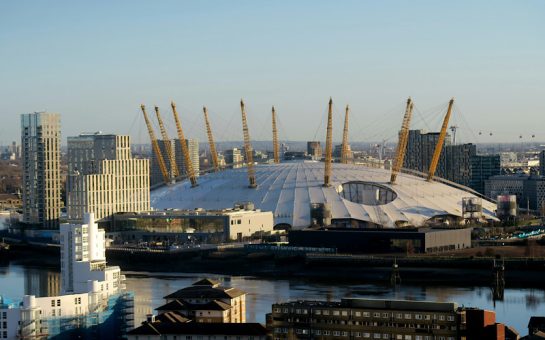London businesses were most impacted by the Covid-19 pandemic, according to exclusive new research.
Created by the Centre of Economics and Business Research, the Covid-19 Business Impact Tracker is an analysis of 20 separate indicators – including demand for government support schemes, GDP and workplace footfall – to reveal how UK businesses have coped with tougher trading conditions as a result of the pandemic.
Commissioned by E.ON, the research reveals that after the initial shock of lockdown in March, signs from Wales, the north-west and East Midlands – where restrictions have been tougher for longer – show businesses are proving more resilient.
The tracker started with a baseline score of 98 at the beginning of the year while under normal economic conditions.
That number fell to a low of just 19 in April and despite signs of recovery in recent months, the second lockdown has stalled recovery and flattened numbers to a national average of around 52 between August and October.
Data indicates London appears to be feeling the longer-term effects most significantly – averaging a score of 47 over the late summer and early autumn period.
Wales saw the biggest decline in business activity in October, dropping five points on the tracker, from 54 to 49, as it headed into its ‘firebreak’ lockdown in the month before England entered its second lockdown.
Promisingly, while Wales has not returned to pre-Covid levels, the economic impact was not as significant as in the first lockdown.
Researchers believe this could provide a strong sign for businesses across the rest of the UK as they emerge from their second four-week stint of restrictions.
However, more than one in five (22%) businesses in the arts, entertainment and recreation sector paused trading in October and, as the worst impacted sector, it is no surprise that a third (34%) of businesses in the industry saw their turnover fall by more than half.
Accommodation and food services businesses were affected nearly as hard, with almost a fifth (18%) reporting they paused trading in October.
“This research shows that, despite challenging operating conditions, companies across UK industries have shown incredible resilience during the pandemic,” said E.ON UK chief executive Michael Lewis.
“It’s understandable that businesses have focused on the immediate threat but as we hopefully emerge from the worst of the pandemic, companies must now invest in a green economic recovery, not only to protect their bottom lines but to help alleviate the next looming catastrophe: the climate crisis.
“This research shows that both government and the energy industry must also find a way to remove some of the barriers – notably cashflow and payback periods on investments – and work together with businesses to deliver a recovery which makes economic and environmental sense.”
The report also reveals businesses see a downturn in energy use caused by lockdown as a short-term trend.
While many businesses are still operating at reduced capacity, improved Covid testing and developments of vaccines have prompted hopes of a full reopening of the economy in 2021.
And most businesses are expecting to return to usual levels of operations and energy consumption, if not higher.
“While the landscape remains complex, energy use provides a useful insight into how companies are adapting,” added Lewis.




